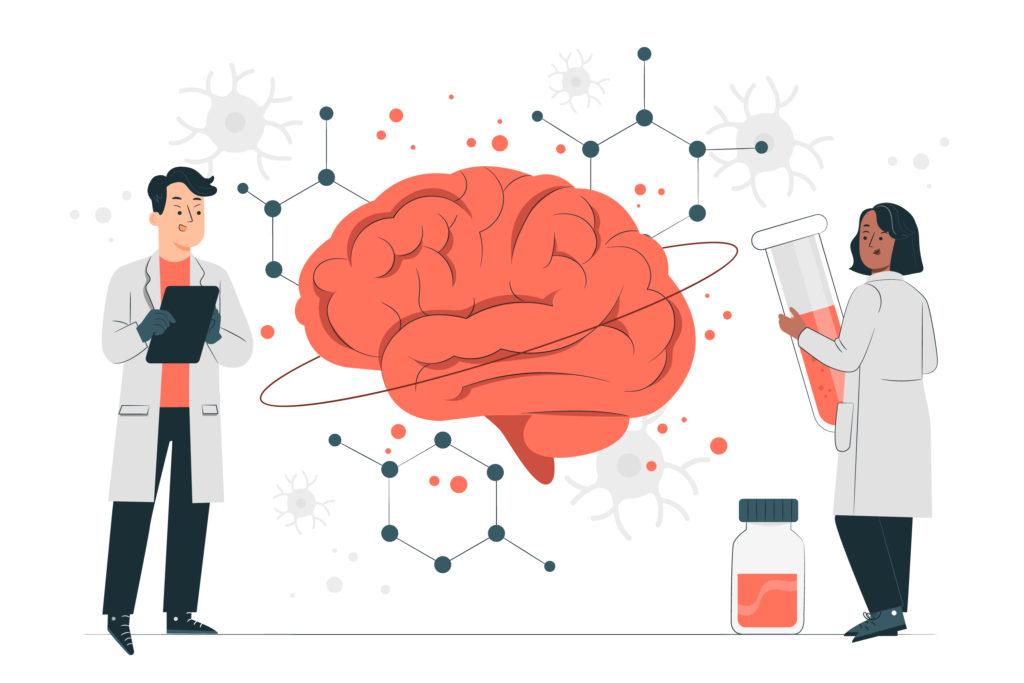
The Implications Of Covid-19 On The Human Brain
The Implications Of Covid-19 On The Human Brain
A lot happened over the last two years. On March 11, 2020, the World Health Organization declared COVID-19 as a global pandemic. Today, as we’ve stepped into year three of the crisis that affected our lives and livelihoods, we’re bringing you a look at how the disease, widely perceived as a respiratory one, impacts the human brain.
The perception
A lot of us are unaware of the full name of the virus causing the Covid disease. It is called SARS CoV2, short for Severe Acute Respiratory Syndrome Coronavirus- 2. The reason for naming the virus in such a way is due to the fact that Covid was initially thought of as a respiratory disease. There was nothing wrong with assuming the said term because Covid showed the regular symptoms of a typical respiratory disease- cough, breathlessness, fatigue, fever etc. The approach in treating the patients of the first wave of Covid also followed the same protocol as to how a respiratory illness was treated. Only after the first wave of patients recovered, the long-term effects of Covid-19 were noticed.
Covid was found to be more than just a respiratory illness. It was found that this disease caused long term complications on almost all vital organs of the body, mainly the brain and the nervous system. Several papers were published, with a plethora of researches undertaken to study the impact of the disease on the nervous system and the brain.
The impact on mental health
Data obtained from the patient analysis in the U.S., showed that Covid patients had a higher chance of getting affected by mental health illnesses like anxiety and depression. Further, they showed early signs of the onset of brain fog, sleeplessness, dementia, psychosis etc. Some of these conditions are also called Long Covid or Post Covid conditions, where a huge range of health problems are induced or they persist even after the patient is cured of Covid-19.
Researchers initially thought that these kinds of effects are caused due to the entry of the virus into the Cerebrospinal Fluid (CSF)- the fluid surrounding our brain and spine. But further studies and autopsies showed a lack of viral components in the fluids, baffling healthcare professionals and researchers alike. Only after that, it was found that the Coronavirus had triggered an immune response in the brain, often causing inflammation in the nervous system and inciting autoimmune conditions- where the body mistakes its own cells as pathogens and starts to fight them.
Some of the patients affected by Covid also had decreased oxygen concentration in their blood and showed an increased tendency of developing blood clots inside the blood vessels. This leads to a heightened risk of stroke in more vulnerable patients, with hemorrhagic stroke and ischemic stroke being the most common ones caused. Studies have also shown that the risk factor for stroke is also substantially higher in post Covid patients. Even in the younger age group of 30-40 years, an increased risk of stroke is observed in the case of such patients.
This risk of stroke is due to the overactive blood clotting system which sometimes blocks the tiny capillaries connecting to the brain. Along with this acts the hyperactive endothelial system of the body, which increases the tendency of a stroke occurring in a person. The same problem can also occur near the arteries of the heart, damaging the cardiac system and hence risking the possibility of a heart attack for the patient.
A research paper published in the UK recently revealed that there is firm evidence to support the brain related abnormalities arising due to the Covid infection. One important aspect discussed in it is the distortion and damage of tissues in the olfaction and gustation parts of the brain- parts of the brain used to identify, recognize and classify odor. Most of the covid patients reported a loss of taste and smell as one of the common symptoms of the disease, thus supporting the study.
Another important aspect that the paper discussed was the decrease in the amount of gray matter present in parts of the brain. Grey Matter- which processes new information, is responsible for the memory and movement control of the patient. Decrease in such a kind of gray matter causes the problems of brain fog, memory loss or lack of balance in patients etc- where the symptoms are consistent with the studies conducted. One more aspect discussed by the paper for patients with Covid complications is the reduction in the global average brain size of the patients, which has increasingly led to the cognitive degeneration of the brain.
Conclusion
Thus, the larger-than-life risks of patients suffering and recovering from the Covid infection are shown. Studies are unclear if people who have had milder infections in the past also have a chance of contracting these kinds of complications. Also, as various studies are underway, we can expect a whole new range of values and data from those samples. There have been situations wherein the underlying health conditions of various covid patients have been triggered. So, the best way to proceed and avoid further complications is by encouraging the administration of vaccines to all the people, thus reducing the intensity of the disease.